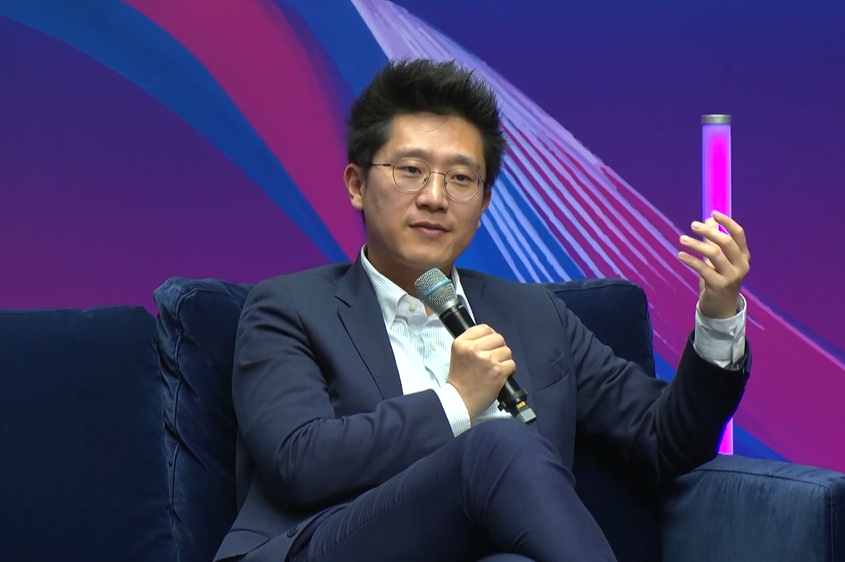Key learnings from the discussion with Vincent Wang, Chief Digital Officer at Legrand, and Xavier Perret, Director Cloud Azure at Microsoft, at the Adopt AI Summit by Artefact - June 5, 2024
Questions by Julien Ho-Tong, Partner at Artefact.
About Vincent Wang: Vincent Wang is the Chief Digital Officer at Legrand since 2022. He oversees digital transformation initiatives and integrates advanced technologies to improve operational efficiency and customer engagement. Prior to this, he worked at Accenture and SFR, focusing on digital strategy and product management. Vincent holds a Master’s degree from HEC Paris and from Mines Paris, completed in 2012. His work at Legrand includes leveraging technologies like generative AI to enhance customer support and product management.
About Legrand: Legrand is a global specialist in electrical and digital building infrastructures, dedicated to supporting technological, societal and environmental change around the globe. With nearly 38,000 employees around the world, we work hard every day to make the buildings of tomorrow more sustainable for everyone.
Legrand’s product portfolio
Legrand’s mission is to improve lives through electrical distribution and highlights how their products integrate into daily activities, from smart home controls to EV charging stations and data center solutions. Legrand offers around 200,000 products sold in over 200 countries, necessitating content creation in about 40 languages. Generative AI assists in creating product content quickly and accurately, helping sales and customer service teams provide relevant information to clients.
Generative AI products
Two AI-based products were developed: Elia and Gaia. Elia is an AI agent providing product information to support and product managers, with future plans to make it public. Gaia helps enrich data and generate marketing content, filling gaps in product sheets and ensuring their integrity. Elia can instantly answer questions about Legrand’s products, write content for sales and communication managers, and help build customer arguments. Gaia assists in producing quality data rapidly in multiple languages, enhancing content creation processes and accelerating deployments.
“Generative AI for the first time in history, we never had a technology that is that accessible, that powerful. It’s even easier than a smartphone, than a PC that we have used before. It’s a huge opportunity for us.”Vincent Wang, CDO at LEGRAND
Business integration and user experience
The AI applications were developed in close collaboration with business teams to ensure they meet the needs of customer support, product managers, and sales managers. The tools are designed to be user-friendly and efficient, allowing non-experts to access and use the technology effectively.
Lessons learned and playbook
The exploration of generative AI led to the creation of a playbook called ATOM, focusing on alignment with business value, transformation requirements, managing projects like a business, and measuring the value created. Ensuring alignment between business goals and technology is crucial, along with assessing the necessary transformation and investment.
Cultural shift and training
Top management and HR have been instrumental in fostering a culture that understands and embraces generative AI. Numerous sessions were launched to raise awareness and train employees, leading to a shift from curiosity to conviction among staff. Teams of AI angels were developed to help others create AI solutions.
Challenges and opportunities
The challenges of scaling AI within the enterprise include the need for security, performance, and minimizing biases. Many employees at lower levels welcome AI tools to improve their work efficiency, contrary to fears of job displacement at higher levels.
Future trends and technological evolution
The discussion covers the latest advancements in AI models, such as GPT-4, focusing on real-time capabilities and vision. Ensuring safety and reliability in AI outputs is highlighted as a core area for future innovation, with an emphasis on grounding AI experiences in reliable data.

 BLOG
BLOG



